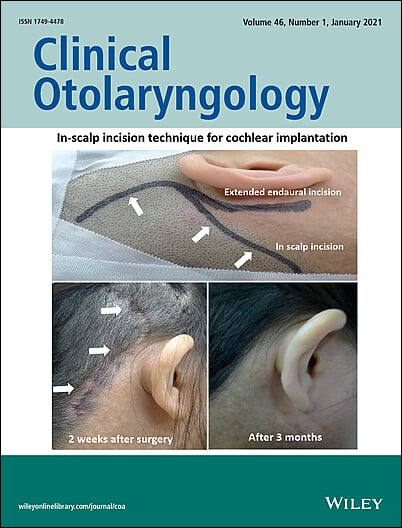Checking out the Field of Otolaryngology: What to Expect When You Consult an ENT
Otolaryngology, frequently referred to as ENT, includes the diagnosis and treatment of ear, nose, and throat disorders. For those experiencing relevant concerns, getting in touch with an ENT professional can supply clarity and relief. Understanding what to anticipate during such assessments is vital for reliable communication and care. This overview will certainly lay out essential elements of the ENT experience, including usual reasons for check outs and the processes associated with medical diagnosis and treatment.

Comprehending Otolaryngology: A Summary
Otolaryngology, typically referred to as ENT (Throat, ear, and nose) medication, is a specific branch of medicine that concentrates on the medical diagnosis and therapy of conditions influencing these crucial areas of the human body. This field encompasses a wide variety of conditions, consisting of those related to hearing, balance, breathing function, and speech. Otolaryngologists are educated to manage both surgical and medical treatments, using innovative techniques and technologies. Their competence prolongs beyond typical conditions, resolving concerns such as allergic reactions, sinus infections, and hearing loss. Furthermore, they play a critical duty in the monitoring of head and neck cancers, offering comprehensive treatment customized to private client needs. Overall, otolaryngology stays crucial for maintaining health and wellness and lifestyle in afflicted people.
Common Factors to See an ENT Specialist
Numerous people look for the knowledge of an ENT professional for a variety of factors, mirroring the varied nature of conditions that affect the nose, ear, and throat. Usual concerns include persistent sinus problems, which commonly leads to persistent nasal congestion and face pain. Allergies and their linked signs and symptoms, such as sneezing and itching, likewise prompt brows through to these specialists (ENT surgery). Hearing loss, whether abrupt or gradual, is an additional substantial factor for consultation. Furthermore, individuals might look for assessment for throat disorders, including persistent hoarseness or swallowing difficulties. Sleep apnea, defined by cut off breathing during rest, is frequently dealt with by ENT professionals. Each of these conditions highlights the value of specialized care in managing intricate ENT-related health issues
Getting ready for Your ENT Visit
When planning for an ENT visit, it is important to collect relevant information and take into consideration any type of details problems. Individuals should compile a comprehensive medical background, including previous ear, nose, or throat problems, surgical procedures, and existing medicines. Documenting signs-- such as seriousness, frequency, and duration-- can give valuable insights for the ENT professional. Additionally, people should prepare a listing of questions they wish to ask, making sure that all issues are addressed during the go to. Bringing along any type of appropriate medical documents or examination results can additionally aid the ENT in comprehending the person's condition. Clients need to confirm their appointment information, including area, time, and day, to minimize any type of last-minute complication. Appropriate prep work can enhance the effectiveness of the assessment and cause far better end results.
What to Anticipate Throughout the Appointment
As the appointment starts, the individual can anticipate to participate in a thorough conversation with the ENT professional regarding their symptoms and case history. The specialist will certainly ask about the duration, regularity, and severity of symptoms such as hearing loss, nasal blockage, or aching throat. Furthermore, the client's previous medical problems, drugs, and any type of pertinent family members history will be evaluated, aiding the specialist in creating a complete understanding of the client's wellness. The ENT may additionally ask concerning way of life variables, such as exposure to allergens or toxic irritants. This open dialogue establishes a structure for the examination, guaranteeing that the individual's worries are resolved and setting the stage for any type of needed assessments or referrals for therapy.
Diagnostic Examinations and Procedures in Otolaryngology
A series of analysis examinations and procedures are vital in otolaryngology to properly assess and detect conditions impacting the throat, ear, and nose. Common examinations consist of audiometry, which determines hearing feature, and tympanometry, evaluating center ear pressure. Nasal endoscopy permits visualization of the nasal flows and sinuses, while laryngoscopy examines the click for info throat and singing cords. Imaging methods, such as CT scans and MRIs, offer in-depth views of head and neck structures. Allergy screening may likewise be performed to determine triggers for sinus or respiratory system issues. These diagnostic devices enable ENT experts to create a complete understanding of clients' problems, ensuring tailored and effective monitoring plans. Proper diagnosis is essential for effective therapy end results in otolaryngology.
Therapy Options Used by ENT Specialists
ENT experts use a variety of therapy alternatives tailored to address certain problems impacting the ear, nose, and throat. These therapies vary from traditional strategies, such as drug and lifestyle modifications, to more invasive treatments. Allergic reactions may be taken care of with antihistamines or immunotherapy, while persistent sinus problems could call for nasal corticosteroids or sinus surgical procedure. For hearing loss, ENT professionals frequently suggest listening device or surgical treatments like cochlear implants. In instances of throat problems, choices can include speech treatment or surgical treatments to eliminate obstructions. Additionally, they might give advice for taking care of rest apnea, consisting of using CPAP devices or medical treatments. On the whole, the objective is to improve patients' lifestyle via customized care and effective therapy methods.
When to Seek Follow-Up Care With an ENT
Identifying when to seek follow-up treatment with an ENT professional is essential for handling ongoing signs and symptoms or difficulties connected to ear, nose, and throat problems. Individuals ought to think about scheduling a follow-up visit if signs and symptoms continue regardless of initial therapy, such as persistent ear pain, nasal blockage, or throat pain. Modifications in hearing, balance issues, or unusual nasal discharge might also necessitate additional evaluation. Additionally, if an individual experiences side impacts from suggested medications or has gone through a surgery, follow-up care is very important to keep an eye on healing and resolve any kind of concerns. Timely appointments can assure efficient monitoring of problems, protect against potential issues, and supply satisfaction concerning one's health and wellness. Looking for follow-up treatment advertises aggressive wellness monitoring in otolaryngology.
Regularly Asked Inquiries

What Qualifications Should I Look for in an ENT Professional?
When looking for an ENT specialist, one need to search for board certification, appropriate experience, and strong individual reviews. Additionally, effective interaction abilities and a caring method can considerably enhance the general therapy experience.
How Do I Pick the Right ENT for My Demands?
Choosing the best ENT professional involves examining their credentials, experience, and individual testimonials (Otolaryngology). It is necessary to contemplate their interaction style and method to therapy, guaranteeing they align with the individual's click this certain wellness demands and preferences
Exist Any Kind Of Risks Linked With ENT Procedures?
The risks linked with ENT treatments might consist of infection, bleeding, anesthesia issues, and possible damages to surrounding frameworks. Clients must talk about these risks with their doctor to understand private concerns and warranty notified decisions.
Just How Can I Take Care Of Anxiety Prior To My ENT Appointment?
To handle anxiousness prior to an appointment, individuals can exercise deep breathing workouts, envision favorable results, prepare concerns ahead of time, and look for assistance from pals or household, fostering a feeling of confidence and peace.
What Should I Do if I Experience Adverse Effects From Therapy?
The person needs to immediately report them to their health care service provider if side effects from treatment occur. Changes to therapy or extra interventions see post might be necessary to ensure safety and security and performance in handling their problem - Otorrinolaringologia. As the appointment begins, the individual can anticipate to engage in a thorough discussion with the ENT professional regarding their signs and medical background. These analysis tools make it possible for ENT experts to develop a detailed understanding of individuals' conditions, making sure customized and reliable management strategies. ENT specialists use a range of therapy choices customized to resolve specific conditions impacting the throat, ear, and nose. When seeking an ENT specialist, one should look for board qualification, pertinent experience, and strong person testimonials. Choosing the ideal ENT professional entails examining their certifications, experience, and patient reviews